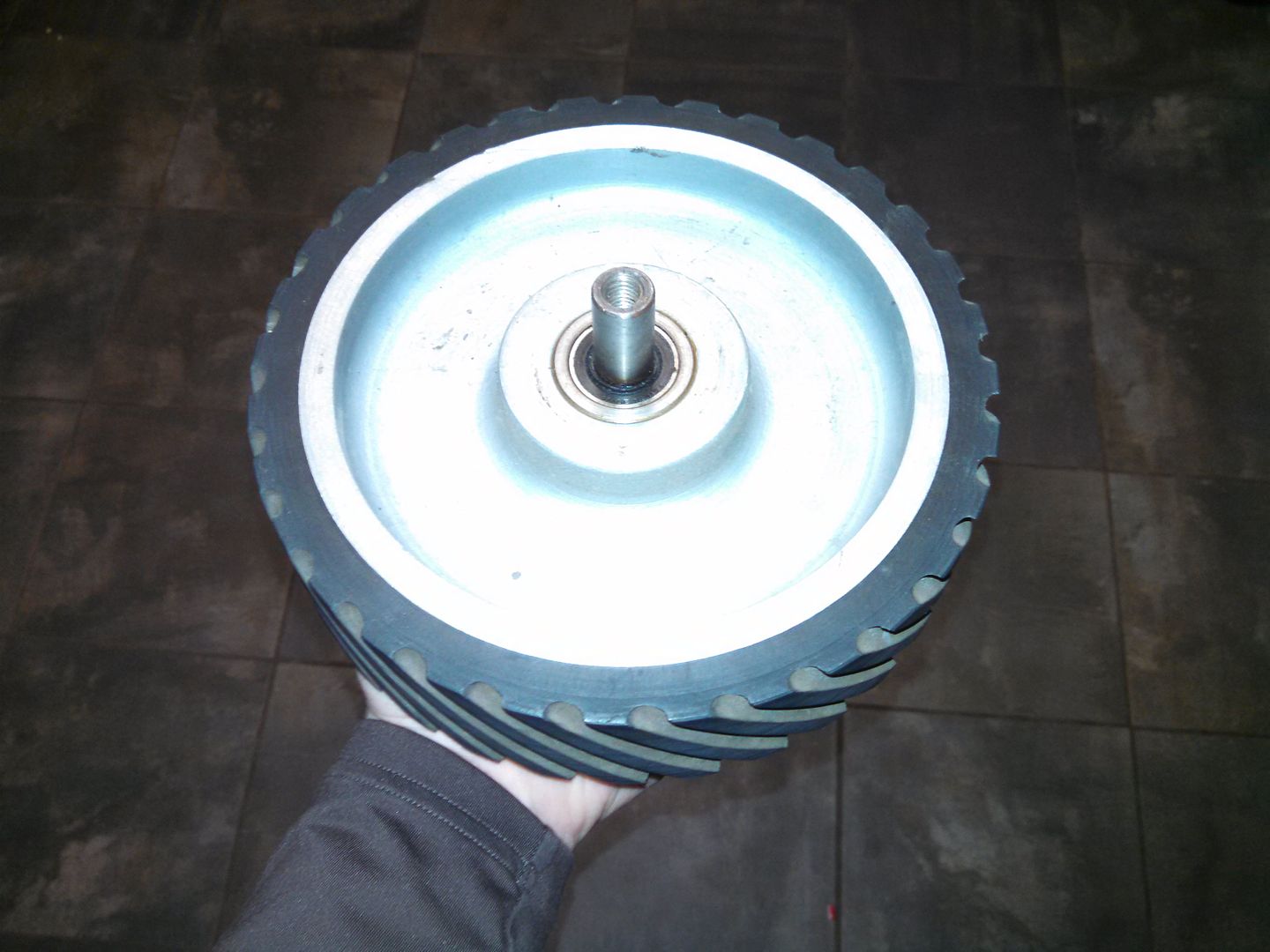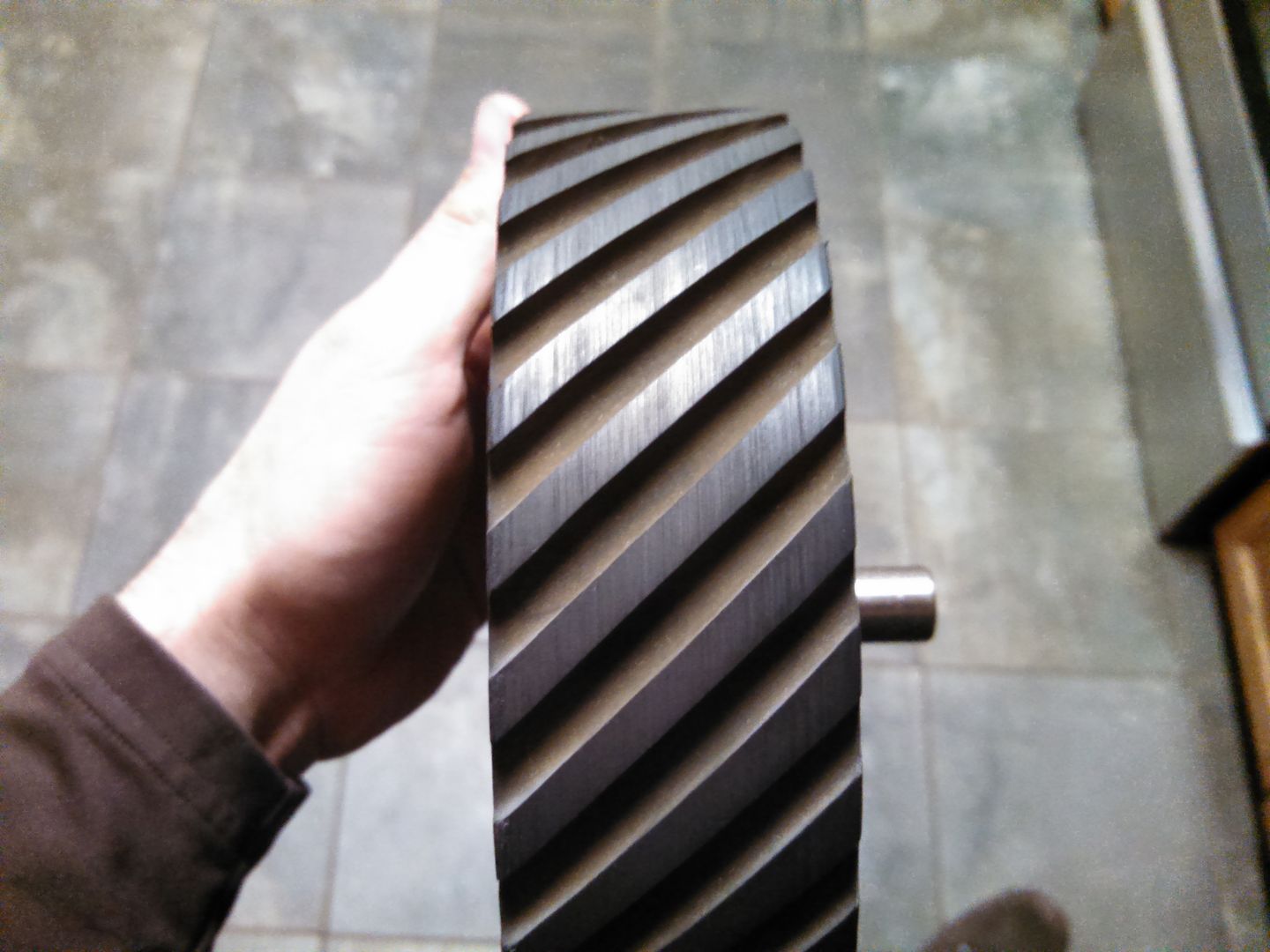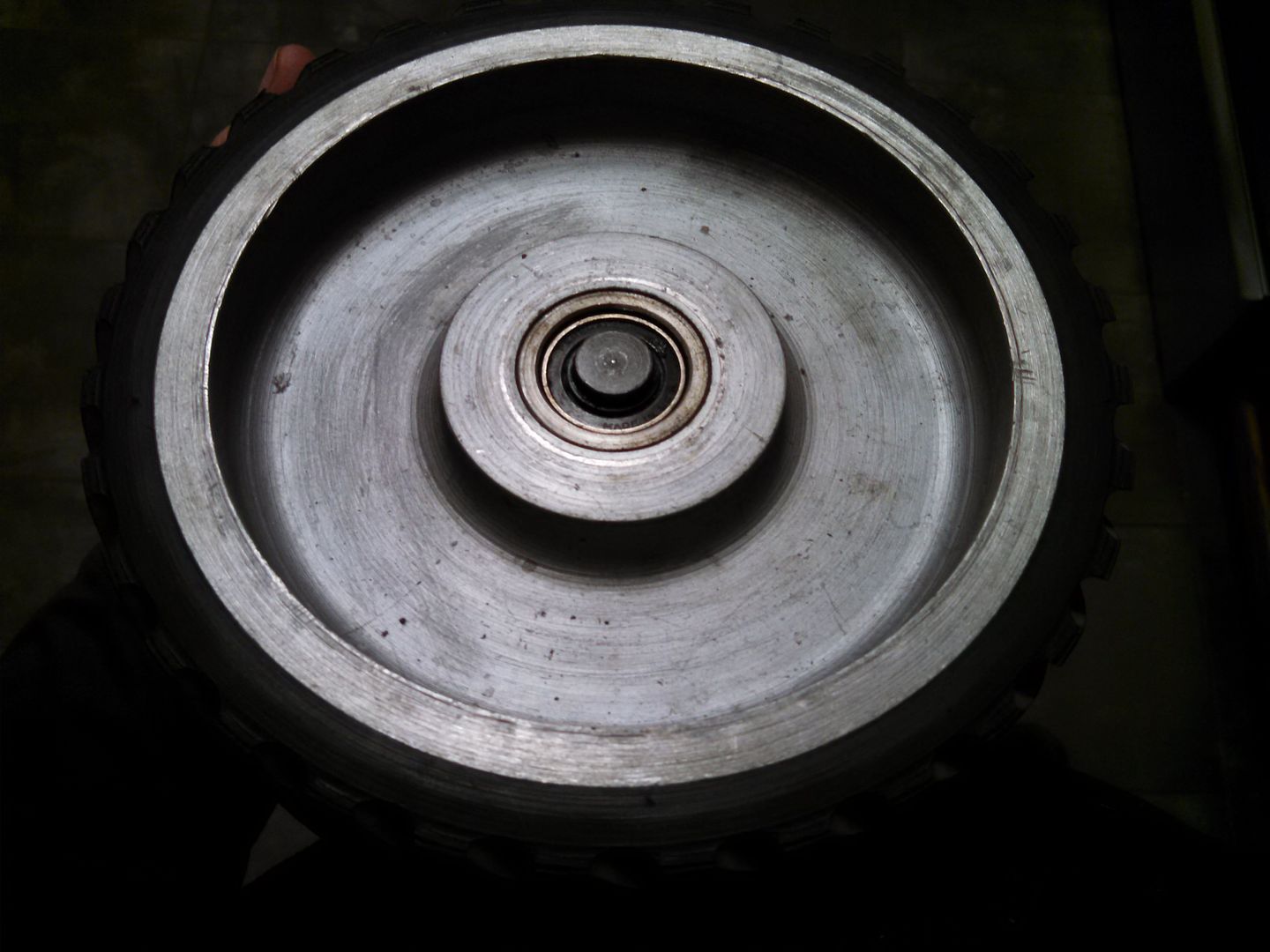I suspect the "bump" you are feeling is the belt joint. Although there is a possibility that you got your hands on one with a defect, or that is just not a "good" wheel.
I do very little hollow grinding on blades, but when I do, I use a 10", 70 durometer wheel. The difference between smooth and serrated wheels is: A smooth wheel removes material at a slower rate, but leave a better finish. A serrated wheel removes material faster then the same diameter smooth wheel, but the trade-off is a "rougher" finish.
70 durometer is the standard hardness used on just about all belt grinders.....its proven to be the best blend of usability and hardness. Generally is you choose to go to a softer wheel, say a 60 durometer, there will be a very noticeable difference in the hardness. Finishes will be smoother compared to a 70 durometer wheel, and the overall "feel" when grinding is "softer". The drawback is that a 60 durometer wheel or softer, is much more fragile....corners will round very easily, and if you "lean into it", a 60 durometer wheel is very easy to gouge, cut, or otherwise tear up. So essentially, if you go softer, be prepared for a more fragile contact wheel, that will require repair/replacement more often. Of course thats assuming you grind in the same manner you have with your current wheel.
My recommendation if you can't find a commercially available contact wheel to suit your needs is to go with SunRay Inc. They produce urethane wheels that I have come to prefer over rubber contact wheels. If you choose to go with SunRay, there are some things you need to know.....
1. They DO NOT keep wheels in stock, but rather make them to order. What that means is that the wait time is generally 4-6 weeks before your order ships.
2. SunRay's main business is as a military contractor (they produce rollers for tracked military vehicles), and being such they are used to working with military contracts. What that means is you MUST be very specific about EVERY aspect of the wheel(s) you want. I say that because I've had folks who ordered larger contact wheels from them, based on my recommendation, who have phoned and fussed at me...... one individual called up complaining to me that he had ordered a 12" wheel from SunRay, and that is wasn't balanced when he received it. When I asked him if he had specified that the wheel be balanced, his response was "No! They should have known to do that!" NO! If you don't specify it, then SunRay doesn't do it. So know what you want, and how you want it, and make sure you specify it when ordering.
I do a lot of profile grinding with a 70 durometer, 10" SunRay wheel, and like it very much. If I remember correctly, that wheel cost me $240, compared to $300+ for a commercially avaialble 10" rubber contact wheel. Mine is a steel core, with 1/2" ID bearings....... I prefer steel core contact wheels simply because I can replace bearings infinitely, versus aluminum cores which will only allow you to replace bearings once, or maybe twice before the bearing pockets get "stretched" and the bearings will no longer stay in the wheel.



